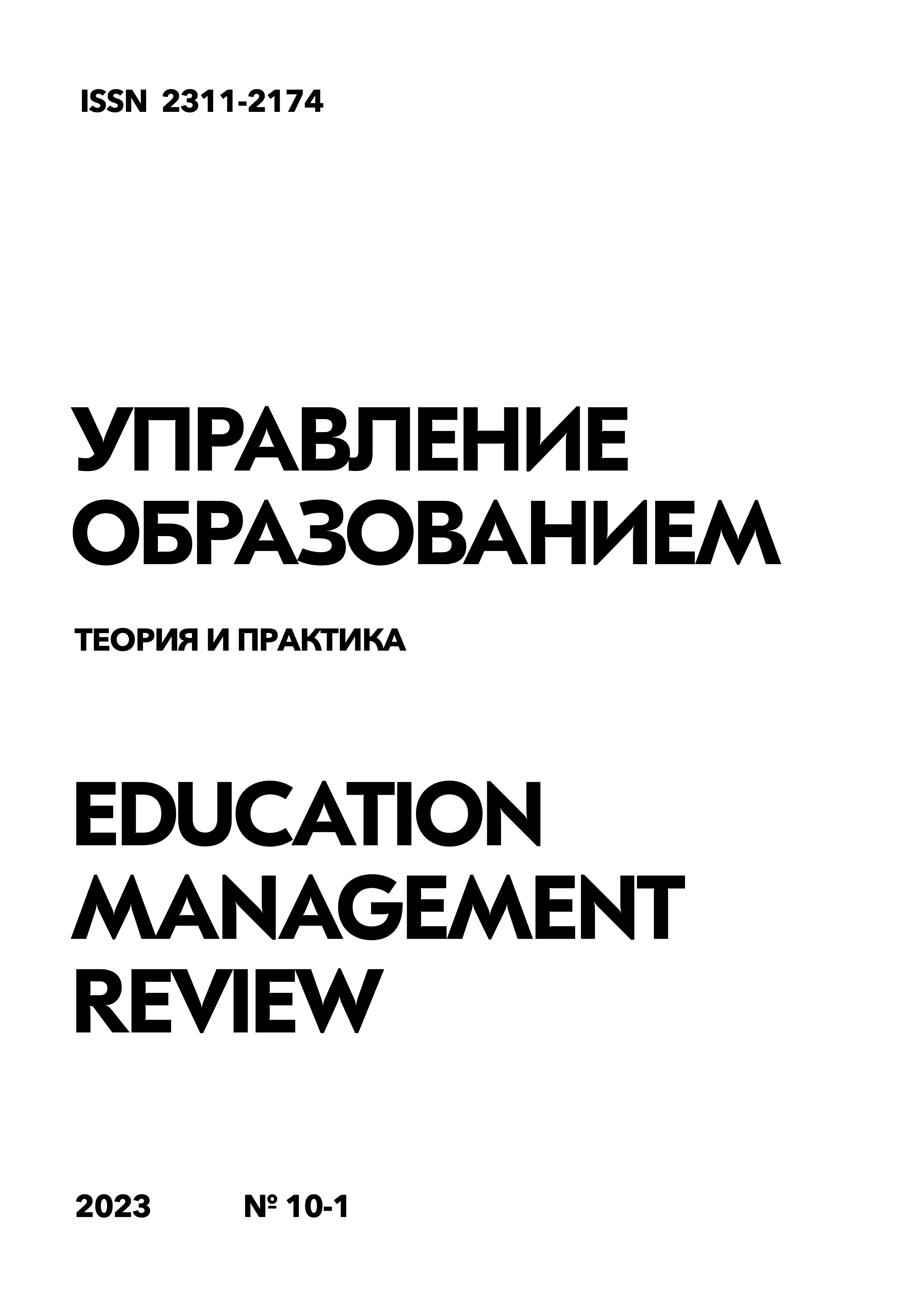Axiological aspect of physical education of schoolchildren in conditions of social instability
DOI:
https://doi.org/10.25726/c3606-9273-9573-yKeywords:
values, physical education, schoolchildren, physical exercises, beauty of movements, culture of movements, interest, motivation, emotional backgroundAbstract
In the article, the author’s main attention is focused on the formation of the values of physical education classes for students from grades 1 to 11, among which the values of health, spiritual and moral culture, and patriotism stand out. The key position is occupied by the personal aspect in terms of generating interest and motivation for physical education based on the beauty of the physical appearance and culture of movements. The article is devoted to the study of the axiological aspect of physical education of schoolchildren in the context of social instability. The authors consider the significance and role of physical education as a tool for the formation of value orientations among the younger generation in conditions of sociocultural fluctuations. Particular attention is paid to the relationship between physical activity and the psycho-emotional state of students, their ability to adapt and withstand social challenges. The article presents the results of an empirical study confirming the positive impact of targeted physical education on the formation of a stable system of life values among schoolchildren. The authors offer specific methodological recommendations for teachers and trainers. In conclusion, the importance of the axiological approach in physical education as a means of socialization and spiritual development of youth in difficult social conditions is emphasized. We note that in the process of developing physical education values in students, the main role is played by the physical education teacher, his professional skills in the formation of knowledge, skills and abilities as the basis of motivation and determining the priority values of his physical improvement.
References
Авдеева Н.Н., Ашмарин И.И., Степанова Г.Б. Здоровье как ценность и предмет научного познания // Мир психологии. 2011. № С. 68-75.
Ананьев В.А. Введение в психологию здоровья: учебное пособие. СПб.: Балтийская Педагогическая Академия, 1998. 148 с.
Бальсевич В.К. Физическая подготовка в системе воспитания культуры здорового образа жизни человека (методологический, экологический и организационный аспекты) // Теория и практика физической культуры. 2012. №1. С.22-26.
Берштейн Н.А. О ловкости и ее развитии. М.: Физкультура и спорт, 1991. 228 с.
Бондаревская Е.В. Теория и практика личностно-ориентированного образования. Ростов на Дону: Булат, 2000. 351 с.
Ковалевская А.П. Влияние экстремальной ситуации военного конфликта на эмоциональное состояние детей дошкольного возраста // Вестник Вятского государственного университета. 2020. № 2 (136). С. 142-149.
Леонтьев А.Н. Деятельность. Сознание. Личность. М.: Смысл: Академия, 2005. 346 с.
Примерная Рабочая программа начального общего образования. ФИЗИЧЕСКАЯ КУЛЬТУРА (для 1-4 классов). – Москва, 2021. -82с.
Примерная Рабочая программа основного общего образования. ФИЗИЧЕСКАЯ КУЛЬТУРА (для 5-9 классов). Москва, 2021. 137с.
Примерная Рабочая программа среднего общего образования. ФИЗИЧЕСКАЯ КУЛЬТУРА (для 10-11 классов). Москва, 2021. 84 с.
Ротерс Т.Т. Духовность как профессионально-личностное качество учителя физической культуры. В сб. «Профессионализм педагога: сущность, содержание, перспективы развития. 2018. 207-211 с.
Ротерс Т.Т. Эстетический потенциал занятий физической культурой студентов высшей школы // Вестник Объединения православных ученых. 2020. С. 240-248.
Стратегия развития физической культуры и спорта в Российской Федерации до 2030 года. URL: http://static.government.ru/media/files/Rr4JTrKDQ5nANTR1Oj29BM7zJBHXM05d.pdf.
Указ Президента РФ от 9 ноября 2022 г. № 809 “Об утверждении Основ государственной политики по сохранению и укреплению традиционных российских духовно-нравственных ценностей”. URL: https://www.garant.ru/products/ipo/prime/doc/405579061/?ysclid=lmkajqs4f9482278426.
Федеральный государственный образовательный стандарт начального общего образования (Редакция с изменениями № 286 от 31 мая 2022 года). URL: https://sh-beryozovskaya-kanifolnyj-r04.gosweb.gosuslugi.ru/netcat_files/32/50/FGOS_NOO_2021.pdf
Федеральный государственный образовательный стандарт основного общего образования (Редакция с изменениями № 287 от 31 мая 2022 года). URL: https://nosch1.gosuslugi.ru/netcat_files/161/2509/FGOS_OOO_2022.pdf.
Федеральный государственный образовательный стандарт среднего общего образования (Редакция с изменениями № 732 от 12.08.2022 года). URL: https://minobr.tverreg.ru/files/ФГОС%20СОО%20с%20изменениями%20от%2023.09.2022.pdf?ysclid=lmk96lsikx241638403.




